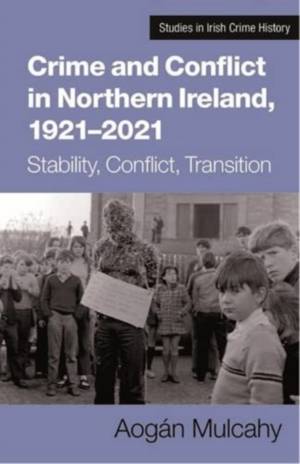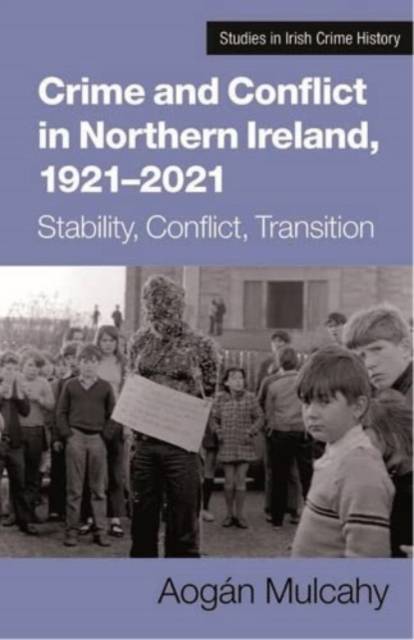
- Retrait gratuit dans votre magasin Club
- 7.000.000 titres dans notre catalogue
- Payer en toute sécurité
- Toujours un magasin près de chez vous
- Retrait gratuit dans votre magasin Club
- 7.000.000 titres dans notre catalogue
- Payer en toute sécurité
- Toujours un magasin près de chez vous
22,45 €
+ 44 points
Description
The book analyses the relationship between crime and conflict in Northern Ireland since the establishment of the Northern Irish state in 1921. Despite the vast research literature that focuses on Northern Ireland's political divisions and the violence of the 'Troubles', the relationship between these issues and crime has received much less attention. This book seeks to fill this gap in our knowledge by examining these issues across three different time periods: from the establishment of Northern Ireland until the outbreak of widespread violence in the late 1960s; the period of sustained political violence known as the 'Troubles', through to the 1998 Belfast Agreement; and the peace process and transitional period up to the present day. While Northern Ireland has often been synonymous with conflict and violence, through much of its history it was characterised by a remarkable stability and distinctively low crime rates. As the civil rights movement of the 1960s gave rise to protests and counter-protests, paramilitary organisations embarked on campaigns of violence and Northern Ireland descended into a thirty-year period of violence and upheaval. The book considers the impact the conflict had on the overall criminal justice system and on policing particularly, and it examines the system of 'alternative' justice used by paramilitary organisations to respond to crime. It also analyses how the peace process affected crime levels and ushered in major reforms to the criminal justice system. Overall, the book highlights the complex and uneven ways in which political division and violence shaped the landscape of crime - suppressing it in some forms, enabling it in others - and criminal justice.
Spécifications
Parties prenantes
- Auteur(s) :
- Editeur:
Contenu
- Nombre de pages :
- 144
- Langue:
- Anglais
- Collection :
Caractéristiques
- EAN:
- 9781782055730
- Date de parution :
- 25-10-23
- Format:
- Livre broché
- Format numérique:
- Trade paperback (VS)
- Dimensions :
- 128 mm x 196 mm
- Poids :
- 272 g







